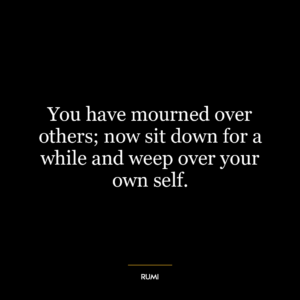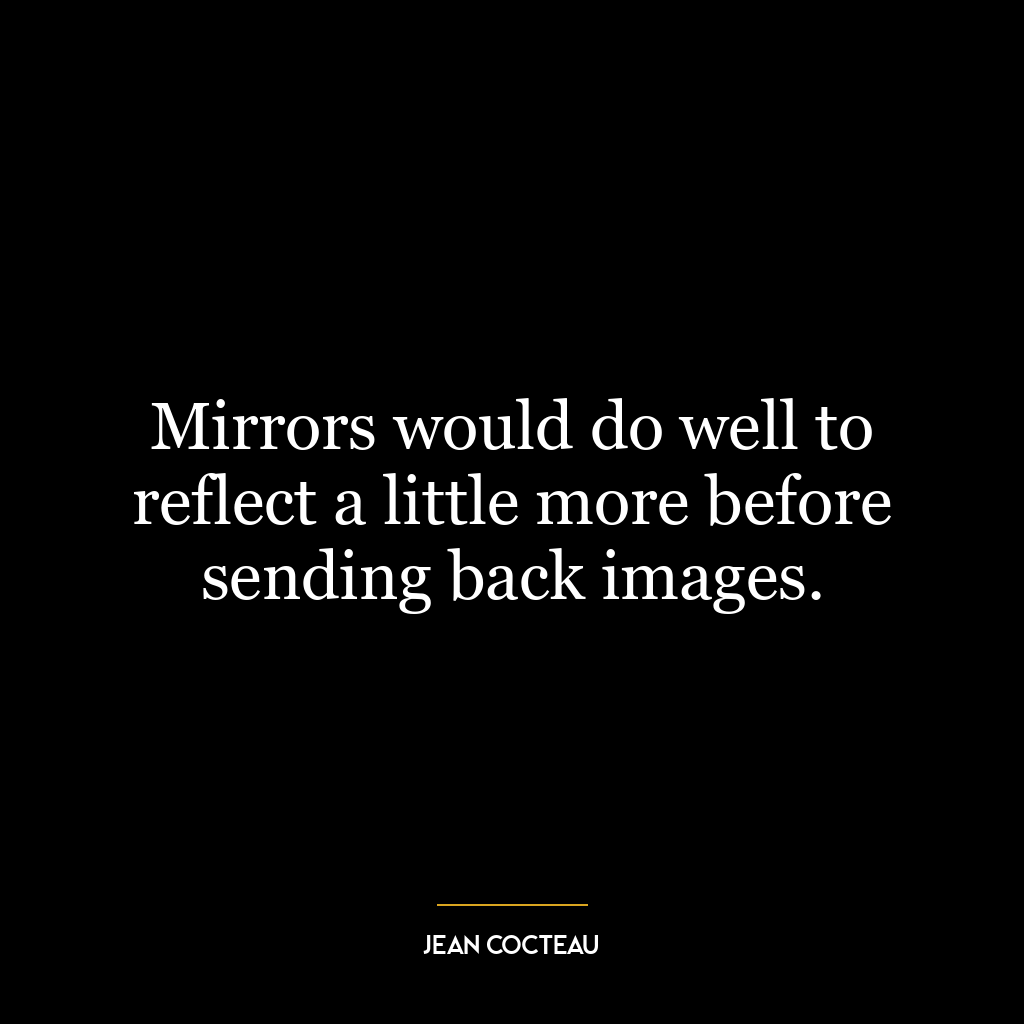Many of the faults you see in others, dear reader, are your own nature reflected in them.
This quote suggests that when we perceive faults in others, it’s often a reflection of our own flaws or insecurities. It’s a psychological phenomenon known as projection, where we attribute characteristics we dislike in ourselves to others. This is often a subconscious defense mechanism to divert attention away from our own shortcomings.
The idea is that we’re more likely to notice and be bothered by traits in others that we ourselves possess and are uncomfortable with. For instance, if we are often late and feel guilty about it, we may become particularly irritated when others are late. This doesn’t mean that every fault we see in others is a reflection of our own, but it offers a perspective to consider when we find ourselves excessively bothered by others’ behavior.
In today’s world, this concept has significant implications. On a societal level, it may explain why certain groups are so quick to criticize others. For example, those who are most vocal about a particular social issue may themselves be struggling with that issue. On a personal level, understanding this concept can be a powerful tool for self-reflection and personal development.
When we find ourselves bothered by someone else’s behavior, it might be beneficial to pause and reflect on why it bothers us so much. Could it be that we see a reflection of our own behavior or traits that we’re not proud of? If so, recognizing this can be the first step towards personal growth. It offers an opportunity to address these traits in ourselves, rather than focusing on them in others.
In relationships, understanding this concept can help us communicate more effectively and empathetically. Instead of immediately reacting to a perceived fault in a partner or friend, we could consider what our reaction says about our own insecurities or shortcomings. This can lead to more constructive conversations and deeper understanding of both ourselves and others.
In conclusion, this quote encourages introspection and self-awareness. It reminds us that our judgments of others often say more about us than about them, and provides a pathway for personal development and improved relationships.















